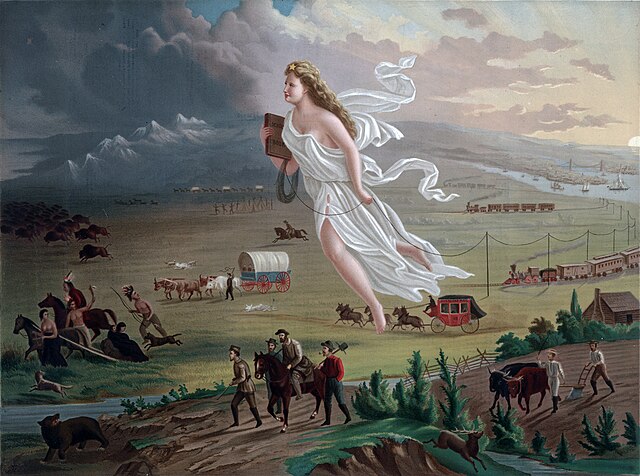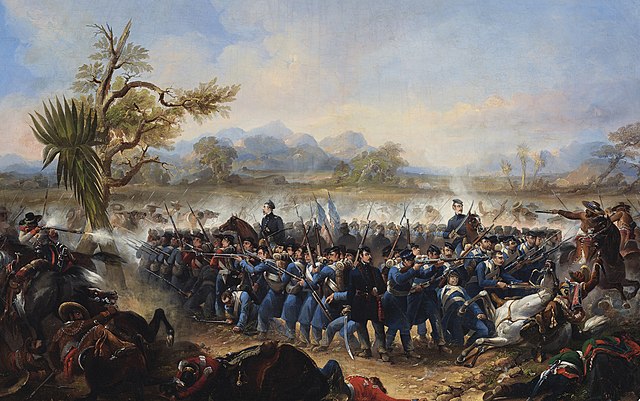The Empire of Liberty is a theme developed first by Thomas Jefferson to identify what he considered the responsibility of the United States to spread freedom across the world. Jefferson saw the mission of the U.S. in terms of setting an example, expansion into western North America, and by intervention abroad. Major exponents of the theme have been James Monroe, Andrew Jackson and James K. Polk, Abraham Lincoln, Theodore Roosevelt, Woodrow Wilson (Wilsonianism), Franklin D. Roosevelt, Harry Truman, Ronald Reagan, Bill Clinton, and George W. Bush.
Columbia (the American people) reaches out to help oppressed Cuba in 1897 while Uncle Sam (the U.S. government) is blind and does not use its great firepower. Judge magazine, Feb. 6, 1897
View of Liberty, Bedford County, Virginia (1855), Edward Beyer
Manifest destiny was a phrase that represented the belief in the 19th-century United States that American settlers were destined to expand westward across North America, and that this belief was both obvious ("manifest") and certain ("destiny"). The belief was rooted in American exceptionalism and Romantic nationalism, implying the inevitable spread of the Republican form of governance. It was one of the earliest expressions of American imperialism in the United States of America.
American Progress (1872) by John Gast is an allegorical representation of the modernization of the new west. Columbia, a personification of the United States, is shown leading civilization westward with the American settlers. She is shown bringing light from east to west, stringing telegraph wire, holding a school book, and highlighting different stages of economic activity and evolving forms of transportation. On the left, Indigenous Americans are displaced from their ancestral homeland.
The Battle of Río San Gabriel, was a decisive battle action of the Mexican–American War (1846–1848) as part of the US conquest of California.
The Battle of San Jacinto, was the final battle during the Texas revolution (1835-1836) which resulted in a decisive victory for the Texian army.
John L. O'Sullivan, sketched in 1874, was an influential columnist as a young man, but he is now generally remembered only for his use of the phrase "manifest destiny" to advocate the annexation of Texas and Oregon.






